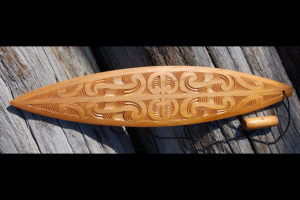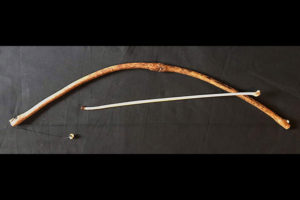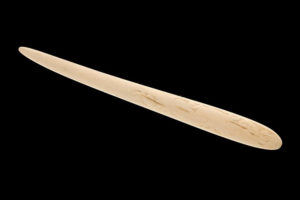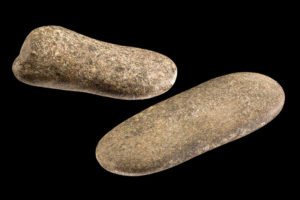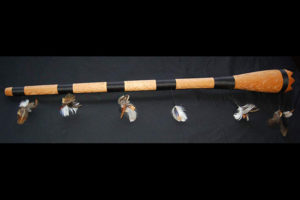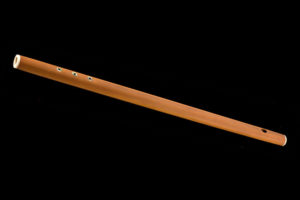
Pūkāea
The pūkāea was a wooden trumpet, up to 2.5 metres long making it one of the largest taonga puoro. It was made by splitting a length of mataī, hollowing out each half, then binding them together, often with the aerial roots of the kiekie vine. The narrow end had a carved wooden mouthpiece and the other was flared out. Sometimes the flared end had wooden pegs added to make it resemble the human throat.
Pūkāea can be used in many contexts. In whatever context they are played, the primary function is to announce spiritual pathways. Ancestral Māori used pūkāea to sound alarms during times of conflict and to announce relay signals to warriors. In this context they were dedicated to Tūmatauenga, the atua (spiritual entity) of war. For this reason pūkāea are sometimes called war trumpets, although this is a limited perspective of the instrument and not entirely correct.
Despite this association with conflict, pūkāea were also used during peaceful ceremony as signalling instruments for various occasions of importance. This included important cultural formalities and also agricultural rituals associated with the planting and harvesting of kūmara and other crops. When used in the agricultural context, pūkāea were dedicated to Rongo mā Tāne, the atua (spiritual entity) of the kūmara and cultivated food. The Pūtātara is similar in that it is ‘trumpet-like’.






